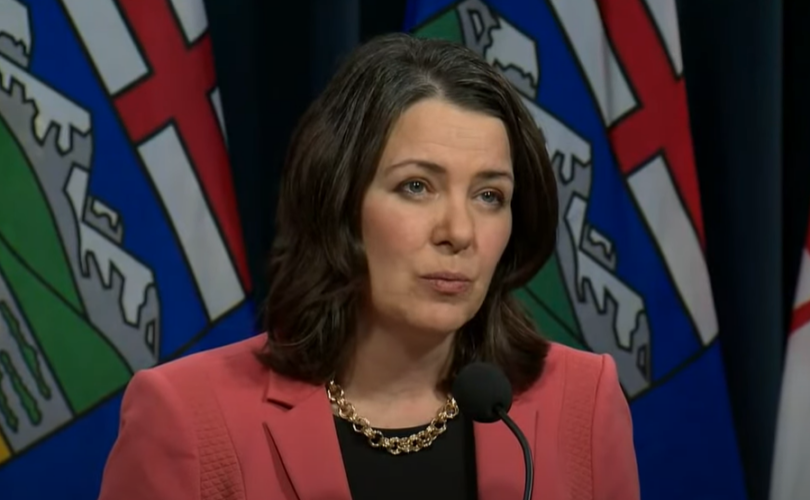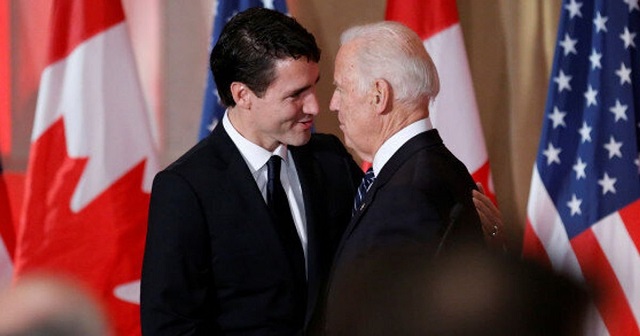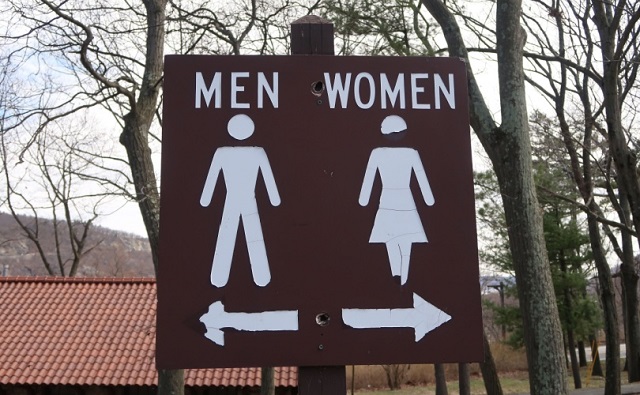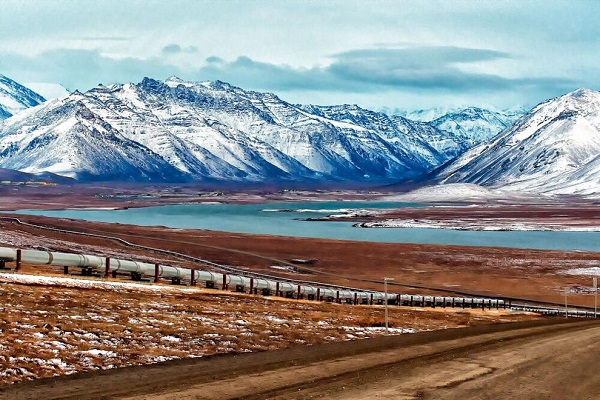Alberta
Province to issue heavy fines against people who reject COVID-19 public orders

From the Province of Alberta
Enforcing measures to stop spread of COVID-19
61 more COVID-19 confirmations in Alberta. Total to 419
To protect the health and safety of Albertans, law enforcement agencies have been granted full authority to enforce public health orders and issue fines.
In addition, it is now mandatory for travellers returning from outside of Canada to self-isolate. This legal requirement also applies to close contacts of confirmed COVID-19 cases, as well as to any individual with symptoms, such as a fever, cough, sore throat or runny nose.
“We must do everything we can to protect Albertans through this pandemic. While the vast majority of Albertans are doing their part to flatten the curve by self-isolating, practising physical distancing or helping those who are self-isolating, some are not. Self-isolation orders are not suggestions or guidelines – they are now the law and they must be followed. Anyone putting their families, their neighbours, or other Albertans at risk will face consequences.”
Through amendments to the Procedures Regulation under the Provincial Offences Procedures Act, community peace officers, in addition to police, will be able to issue tickets to enforce COVID-19 public health orders. Fines now administered through tickets for violating an order have increased from up to $100 per day to a prescribed fine of $1,000 per occurrence. Courts will also have increased powers to administer fines of up to $100,000 for a first offence and up to $500,000 for a subsequent offence for more serious violations. These new fines will be in force over the coming days.
“The chief medical officer of health has the full cooperation of community peace officers and local policing to ensure Albertans comply with orders. Albertans’ health is and will always be our top priority, and we will use all necessary enforcement measures to ensure Albertans take this situation seriously by self-isolating and limiting mass gatherings.”
Public health orders subject to fines for violation include:
- Any individual who has travelled outside of Canada must go into mandatory self-isolation for 14 days from their return, plus an additional 10 days from the onset of any symptoms should they occur, whichever is longer.
- Any individual who exhibits COVID-19 symptoms must self-isolate for a minimum of 10 days from the start of their symptoms, or until the symptoms resolve, whichever is longer. Symptoms include cough, fever, shortness of breath, runny nose, or a sore throat.
- Any individual who has been identified by as a close contact of a person(s) with COVID-19 must go into mandatory self-isolation for 14 days from the date of last having been exposed to COVID-19, plus an additional 10 days from the onset of any symptoms should they occur, whichever is longer.
- Mass gatherings must be limited to no more than 50 attendees.
- Access to public recreational facilities, private entertainment facilities, bars and nightclubs is prohibited.
- Visitation to long-term care and other continuing care facilities is limited to essential visitors only.
The Government of Alberta and Alberta Health Services are working with local enforcement agencies to manage complaints, which can be submitted online.
Exemptions will continue to be assessed on a case-by-case basis by public health officials.
Quick facts
- All Albertans have a responsibility to help prevent the spread. Take steps to protect yourself and others:
- practise social distancing
- stay home and away from others if sick or in isolation
- practise good hygiene – wash hands often for at least 20 seconds, cover coughs and sneezes, and avoid touching your face
- monitor for symptoms, such as cough, fever, fatigue or difficulty breathing
- Anyone who has health concerns or is experiencing symptoms of COVID-19 should complete an online COVID-19 self-assessment.
- For recommendations on protecting yourself and your community, visit alberta.ca/COVID19.
Nancy Southern has the skills and experience to help Alberta find its way forward
Alberta
Alberta government should eliminate corporate welfare to generate benefits for Albertans

From the Fraser Institute
By Spencer Gudewill and Tegan Hill
Last November, Premier Danielle Smith announced that her government will give up to $1.8 billion in subsidies to Dow Chemicals, which plans to expand a petrochemical project northeast of Edmonton. In other words, $1.8 billion in corporate welfare.
And this is just one example of corporate welfare paid for by Albertans.
According to a recent study published by the Fraser Institute, from 2007 to 2021, the latest year of available data, the Alberta government spent $31.0 billion (inflation-adjusted) on subsidies (a.k.a. corporate welfare) to select firms and businesses, purportedly to help Albertans. And this number excludes other forms of government handouts such as loan guarantees, direct investment and regulatory or tax privileges for particular firms and industries. So the total cost of corporate welfare in Alberta is likely much higher.
Why should Albertans care?
First off, there’s little evidence that corporate welfare generates widespread economic growth or jobs. In fact, evidence suggests the contrary—that subsidies result in a net loss to the economy by shifting resources to less productive sectors or locations (what economists call the “substitution effect”) and/or by keeping businesses alive that are otherwise economically unviable (i.e. “zombie companies”). This misallocation of resources leads to a less efficient, less productive and less prosperous Alberta.
And there are other costs to corporate welfare.
For example, between 2007 and 2019 (the latest year of pre-COVID data), every year on average the Alberta government spent 35 cents (out of every dollar of business income tax revenue it collected) on corporate welfare. Given that workers bear the burden of more than half of any business income tax indirectly through lower wages, if the government reduced business income taxes rather than spend money on corporate welfare, workers could benefit.
Moreover, Premier Smith failed in last month’s provincial budget to provide promised personal income tax relief and create a lower tax bracket for incomes below $60,000 to provide $760 in annual savings for Albertans (on average). But in 2019, after adjusting for inflation, the Alberta government spent $2.4 billion on corporate welfare—equivalent to $1,034 per tax filer. Clearly, instead of subsidizing select businesses, the Smith government could have kept its promise to lower personal income taxes.
Finally, there’s the Heritage Fund, which the Alberta government created almost 50 years ago to save a share of the province’s resource wealth for the future.
In her 2024 budget, Premier Smith earmarked $2.0 billion for the Heritage Fund this fiscal year—almost the exact amount spent on corporate welfare each year (on average) between 2007 and 2019. Put another way, the Alberta government could save twice as much in the Heritage Fund in 2024/25 if it ended corporate welfare, which would help Premier Smith keep her promise to build up the Heritage Fund to between $250 billion and $400 billion by 2050.
By eliminating corporate welfare, the Smith government can create fiscal room to reduce personal and business income taxes, or save more in the Heritage Fund. Any of these options will benefit Albertans far more than wasteful billion-dollar subsidies to favoured firms.
Authors:
Alberta
Official statement from Premier Danielle Smith and Energy Minister Brian Jean on the start-up of the Trans Mountain Pipeline

-

 Opinion2 days ago
Opinion2 days agoClimate Murder? Media Picks Up Novel Legal Theory Suggesting Big Oil Is Homicidal
-

 Energy1 day ago
Energy1 day agoNet Zero’s days are numbered? Why Europeans are souring on the climate agenda
-

 Bruce Dowbiggin2 days ago
Bruce Dowbiggin2 days agoIt Gets Late Early These Days: Time To Bounce Biden & Trudeau?
-

 Addictions2 days ago
Addictions2 days agoCity of Toronto asks Trudeau gov’t to decriminalize hard drugs despite policy’s failure in BC
-

 Opinion1 day ago
Opinion1 day agoQuebec’s ban on gender-neutral bathrooms in schools is good news
-

 Energy24 hours ago
Energy24 hours agoBiden Has Taken More Than 200 Actions Against Domestic Oil, New Report Says
-

 Energy1 day ago
Energy1 day agoHouses passes bill to protect domestic oil production, protect Iñupiat community
-

 Automotive2 days ago
Automotive2 days agoVehicle monitoring software could soon use ‘kill switch’ under the guise of ‘safety’








